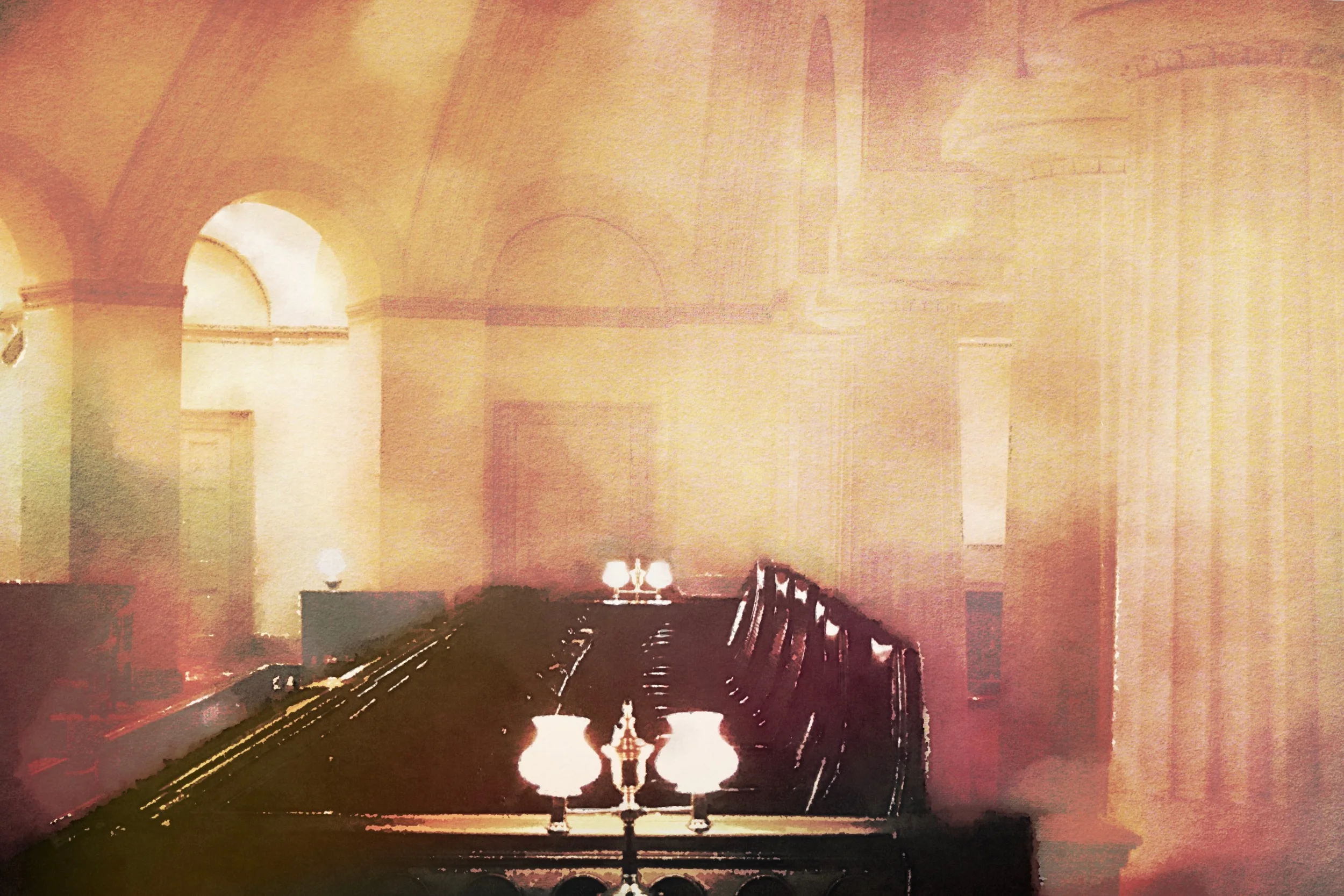Unthinkable, is it? Do you think?
For someone you know, a friend or colleague, to leave home—to flee the country and join up with ISIS? To join in the “killing fields,” as the New York Times so poetically called it… Why? We wonder—we stop and ask: why?
But is it so unthinkable?
For years, I studied the Middle East. I took classes on the intersection of politics and religion. Classes on Arab history, on US democracy promotion and even a few lessons in Arabic. I was fascinated by the most complicated of conflicts—and this one seemed the most complicated of all. Between 2004 and 2008—the years I attended college—the Middle East dominated national and international politics. And I wanted to know why. Not why things were the way they were—but why they couldn’t be different.
But what I learned after all of those years of study was pretty simple. It’s not a difficult question, really. That’s the farce in all international politics. Perhaps, in all conflicts. We see those in different circumstances—because they stand on the other side of the world or the other side of the aisle—and we think of them as if they themselves are different. Different from us in some way: wiser or less wise. Shrewder or less shrewd. More determined. Or more apathetic. Or simply—of a different mind. But people are people everywhere.
People are people everywhere. And the friends and colleagues and students leaving their homes—leaving their “private school” for Syria—they’re people, too. And their motivations are far from unthinkable. Why are they joining ISIS?
Think of a Cult
Cults can be attractive in their ideology, their beliefs and large-scale goals. Who wouldn’t want to remake the world? Who wouldn’t want to be a part of something bigger than themselves? To be privy to a secret? Who wouldn’t want to be special?
Cults are attractive—but their fatal flaw is often the impossibility of their goals. To achieve anything of significance, you need to attract people of action. Pragmatic. Intelligent. Discerning. People who can transform words into action. But people of action are rarely attracted to causes that are impossible to fulfill. It’s not moral scruples or some sense of right and wrong that keep people of action away from most cults. They’re simply too pragmatic for impossible goals.
ISIS has a grand ideology—that it is the fulfillment of Islamic prophecy. And though this may seem impossible to believe, and even more impossible to achieve, ISIS is inspiring devotion from people of action. Why? Because it has seen tactical victories. Think about it:
The organization has gained territory. It’s gained a reputation. And it’s gained money—lots of money. Now, that’s not to say that the end goals are even remotely possible—but these tactical victories are appealing to the action-minded. These victories make the skeptic stop and think: “there’s something real to this.” ISIS appears more plausible. And plausible is all you need when it comes to ideology. Consider how many believe in the world’s religions—despite myriad logical and scientific impediments—simply because those they trust believe in it. If others believe it, it must at least be plausible, right?
Media Legitimacy
Being hated or feared—even loathed—can be a badge of honor. A mark of legitimacy. If they hate you, you must be doing something right. The people on the ground are talking about you? The media is reporting on you? The President of the United States is denouncing you? To the would-be-recruit or the pragmatist, to the disaffected youth who believes in ISIS’s goals but might be unsure of its capabilities—media legitimacy is further proof: “ISIS is really doing something, here.” They’re challenging the most powerful people in the world, they’re making an impact, and in some cases, coming out on top. Is ISIS a cult? Not in the eyes of the media, the eyes of the President—and not in the eyes of the new recruit: “ISIS is a legitimate threat. Its goals might be, too.”
Jihadi Cool
Also—there’s an excitement in it. A “jihadi cool.” You’re an eighteen, nineteen year old kid. All your life has been private schools and public boredom. Video games and virtual connection. And now—now there’s a chance to be something more? To see something more? To bring about the fulfillment of thousand-year-old prophecy? I keep thinking back on the story of Steve Jobs recruiting John Sculley of Pepsi. “Do you want to make sugar water for the rest of your life,” Steve asked, “or do you want to change the world?” There’s a charisma to idealistic organizations, whatever the ideals. Can you imagine what an ISIS recruit faces? The decision put before them? Can you remember what it’s like to want to change the world? And really—truly—to live at a moment, in a time and place, when you could be a part of it?
Smashing the Grey
The modern world is a world of complexity—of nuance. Aaron Sorkin once said that he’s not interested in the difference between good and evil—he’s interested in the difference between good and great. And that’s the direction we’re moving. Global commerce is a game of utilization and optimization—finding efficiencies. Forget about crushing the enemy; this world is about maximizing value. It’s no longer: I’m right, you’re wrong. It’s: you’re right, but have you also considered this? Now, a world of grey can be interesting in a walk-and-talk kind of way. If you’re Aaron Sorkin, you can even make it dramatic. But the heart longs for stark distinctions, for black and white. For the epic sweep of righteous action. Sport, politics—the world’s religions—they’re all built on it. Dramatic movements like ISIS work likewise; a vehicle for breaking through the malaise of modern equivocations. A hammer for smashing the grey.
Significant Action
The question isn't—why is ISIS successful? ISIS is only symptomatic of a global society that is uneasy with the modern world. There are many reasons for this uneasiness—and most of them are legitimate. Where does one find work? Steady work? Meaningful work? Where does one find value in this modern world? Where dignity? And purpose? These are all open questions. Questions that need to be answered in more than just words. Questions that need to be answered in action. If those in power, if leaders of the modern world fail to serve this need, to empower people in significant action, people will find it elsewhere. It’s the most natural of all human needs—the need to live a significant life. Past generations struggled for bread, or for religious freedom, for political liberty or against the shackles of slavery. What does this modern generation struggle for? To what ultimate goal? Every time the modern world fails to make a life significant, to empower significant action, it opens the door to risk. Risk of being outmatched, outgunned, or simply—out-recruited.
People want a cause to live for—and living alone isn’t a cause. It’s a reason to fight for something more. Something meaningful. Even if that meaning puts life itself at risk.
Unthinkable? No.
Human.





